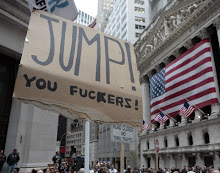

One of Katie and my favorite things to do in southern California is to see double features of great movies, for super cheap, in an old exploitation theater in LA - the New Beverly. During Spring Break, the New Beverly continued to show the greatness that is Sam Peckinpah, whose films I had not seen until we caught Straw Dogs there a couple months ago. Anyways, Straw Dogs blew me away and when a Peckinpah double bill fell in line with the time while I was in southern California, we had to go.
So the first film was Ride the High Country, which was one of Peckinpah's earliest movies, made in 1962. A great revisionist Western, Ride the High Country delves into the changing times in California specifically, but for the frontier of America as a whole, as the west moved from the highly personalized times of cowboys and yeoman farmers and the beginning of the Gold Rush to the large expanse of industrial development and the growing power of the corporation. Steve Judd is a noble old cowboy lawman whose been displaced by the aforementioned social changes and is reduced to protecting gold being sent from the high country mines to the bank. Throughout his journey, Judd is committed to his principles of honesty and loyalty, but they are constantly complicated and challenged through his journey. His old partner, Gil Westrum and his young sidekick Heck, are trying to deceive him and really steal the gold for themselves. Once you see the sniveling greed and weakness of the weasely bankers, it looks more and more like Westrum and Heck have a good argument for their theft and deception. Anyways, throughout the film, the old and the new are constantly clashing, and Judd's rigid nobleness sometimes fits with these new times but mostly makes him an outcast, out of step with this new, dog-eat-dog world. Peckinpah does a great job depicting these contradictions while maintaining a solid and engaging story. We see the backwardness of the fundamentalist, yeoman father, and his daughter trying to break free from his abuse and control and wanting to go to the city and embrace the modern world. The miners are poor and oppressed and semi-autonomous in their high country town, only being dictated to provide resources and make money for the banks. This law is semi-democratic, but mostly personalized and easily manipulated. Judd, while old-school, does not fit in with this either.
Anyways, Ride the High Country is a great film. Peckinpah shot it beautifully, easily aided by the natural beauty of the California setting. The shoot-out at the end was indicative of Peckinpah's trademark stylized action sequences. It fully understands the historical themes that frame this entire story. The last shot of a noble, dying, Steve Judd looking off into the high country as he fades out was beautiful and emotionally powerful.
As I was reflecting on one great movie, another, even better one began. I don't know what to say about The Wild Bunch that has not been said before but I'll give my responses and thoughts. I had always heard about how groundbreaking and great this film was, and now I know why. It fully lives up to the hype. The opening heist/title sequence is one of the best things I've seen. The stylish freeze frames that almost turn the frame into what looks like a sketch look like it was filmed today - but this was a western in 1969. The intercutting between the wild bunch's ride and setting up and execution of the heist and the world around them - a dispirited temperance rally, railroad thugs and lawman setting up to stop the heist, and the poor children watching ants overtake huge scorpions. Just what an amazing sequence, followed by an awesome, ultra-violent, quick-cutting shoot-out. It was such a kick in the nuts, and I can't imagine what it must have been like for audiences at the time.
I also love how the Mexican revolution was the back drop to explore the similar themes of the end of the old west that were prevalent in Ride the High Country. Peckinpah is pretty implicitly sympathetic to the Villista revolutionaries, which is always great. Even the self-motivated gang are eventually forced to take on the corrupt federale General in an orgy of action and violence. It was also funny to see how every woman in the film was basically a malinche, and you couldn't help but be glad when they went down in gunfire with their oppressive men. However, I don't think that was entirely Peckinpah's point. He wanted to show the reality of the violence of the west and the Mexican revolution, and while he does an amazing, stylized, and brutal job of shooting it, the violence is not really romanticized. I don't know I just responded to all the themes, the look, everything about the Wild Bunch. A definite favorite, deserving of its pioneer status. I'm really late in finally watching Peckinpah's films, but he's quickly become a favorite director and I highly recommend both Ride the High Country and the Wild Bunch, as well as Straw Dogs if anyone else is a late-comer like myself. I look forward to watching more of his movies.




No comments:
Post a Comment